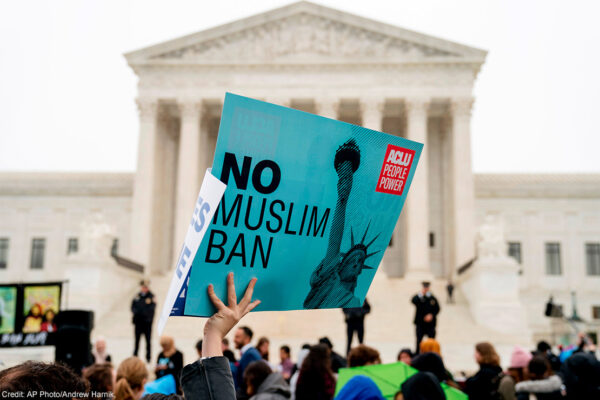This week, Joe Biden was inaugurated as President of the United States. As part of his day one agenda, he rescinded one of the Trump administration’s most noxious orders. The Muslim ban, enacted within Trump’s first days in office, blocked virtually all immigration from countries with substantial Muslim populations, including Syria, Iraq, Sudan, Libya, Somalia, and Yemen.
The order sent people across the world scrambling to avoid permanent separation from their families, their jobs, and their education. Amidst a national outcry and protests in airports and on the streets across the country, the ACLU was able to secure an early victory in the courts.
But, over the years, fighting the Muslim ban became like a game of Whac-a-Mole. The administration would concoct superficial language tweaks to dodge judicial scrutiny, and the ACLU and others would fight anew. In the end, we were left with a ban, rubber stamped by the Supreme Court, that blocked entry to people from 13 countries around the world, mostly in Africa and the Middle East.
This week on At Liberty, we share the stories of three people directly impacted by the Muslim ban, and discuss what ending it will and won’t do for the future of Muslims in America with Manar Waheed, senior legislative and advocacy counsel at the ACLU.
A note for listeners: the conversations in this week’s episode were recorded prior to the Biden administration’s move to end the ban.


